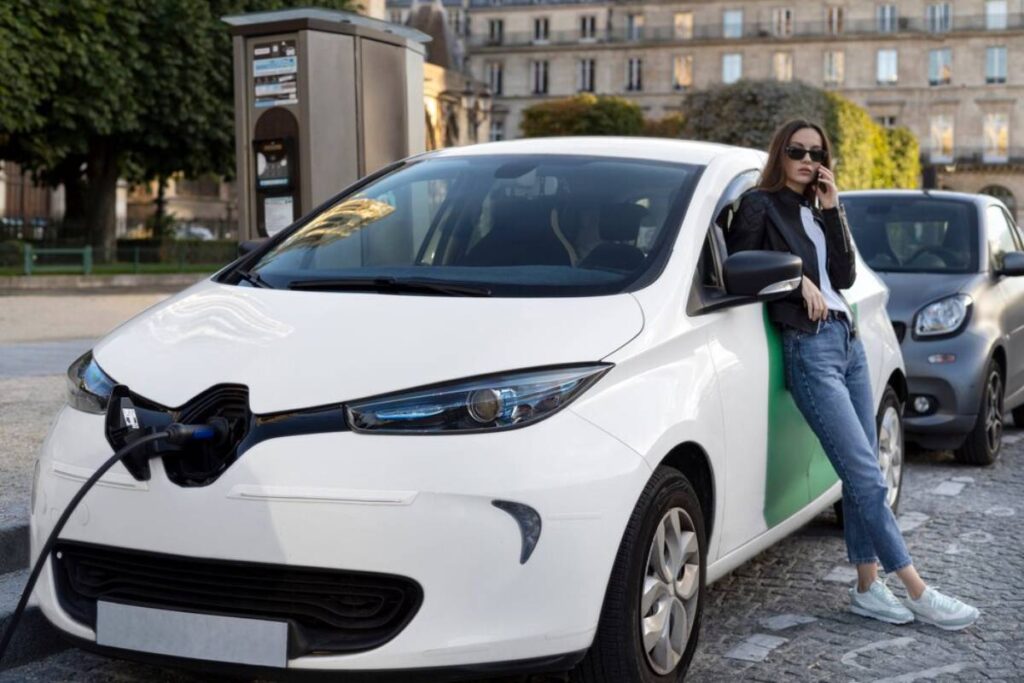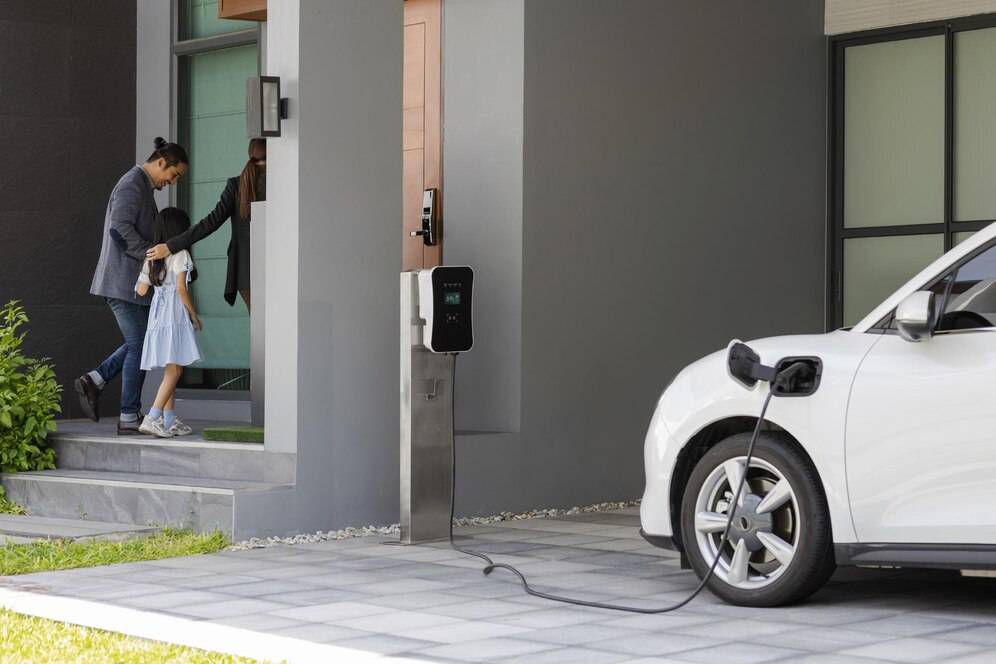The Automobiles & Vehicles Blog

Total Cost of Ownership: EVs vs Gas Vehicles
When it comes to buying a car, most of us are drawn to the price tag on the windscreen. But the real story unfolds long after you’ve driven off the forecourt. With electric vehicles (EVs) becoming increasingly mainstream, there’s a growing need to look past upfront prices and dive into the total cost of ownership (TCO) — the figure that actually tells you what owning that car will cost over the long haul.
From fuel savings and maintenance bills to depreciation and insurance, comparing EV vs gas vehicle cost means considering the big picture. It’s not just about whether your next car plugs in or fills up — it’s about what that choice means for your wallet, your lifestyle, and your peace of mind.
In this post, we’ll break down each aspect of EV TCO, compare it with traditional petrol or diesel cars, and explore how the financial landscape of driving is evolving. If you’re unsure whether going electric is truly more economical, this is the full picture — real-world numbers, honest context, and future-facing insight.
Upfront Purchase Price: The Most Visible Cost
EVs: Higher Today, Lower Tomorrow?
Electric vehicles are still, on average, more expensive to buy than their internal combustion engine (ICE) counterparts. This is largely due to the cost of battery technology, though prices are falling steadily year by year.
Example:
- Nissan Leaf (EV): Starting at ~£28,000
- Nissan Juke (Petrol): Starting at ~£21,000
That’s a £7,000 difference — but don’t stop there.
ICE Vehicles: Lower Cost, Higher Lifecycle Spending
While you might pay less upfront, the hidden costs of petrol or diesel ownership begin to mount quickly — starting with fuel, servicing, and tax.
Verdict: EVs still have a higher sticker price in most segments, but this gap is narrowing. Government grants or incentives (where available) can soften the blow, especially for fleet buyers or businesses.
Fuel vs Charging Costs: Pumping Pounds or Plugging In?
This is where EVs shine — the difference in “refuelling” costs is staggering over time.
EV Charging (UK average):
- Home charger: ~10–14p per kWh on off-peak tariffs
- Cost to charge a 60kWh battery (average range): ~£7
- Estimated range: 200–250 miles
- Cost per mile: 3–4p
Petrol/Diesel:

- Petrol: £1.45 per litre (2024 average)
- 45-litre tank = ~£65
- Average range: 350–400 miles
- Cost per mile: 13–17p
Annual Fuel Cost Comparison (12,000 miles/year):
- EV: ~£400
- Petrol: ~£1,800
Public Charging Caveats
Rapid charging stations (e.g. motorway networks) can cost 40–85p/kWh — sometimes making EVs as costly as petrol for long-distance travellers without home charging access.
Maintenance and Servicing: EV Simplicity Pays Off
EVs have far fewer moving parts than gas-powered vehicles, which dramatically reduces routine maintenance costs.
EV Maintenance Expenses:
- No oil changes
- Less brake wear (thanks to regenerative braking)
- No timing belts, spark plugs, or exhaust systems
Typical Yearly Service Cost:
- EV: £150–£250
- Petrol/Diesel: £300–£500
Over five years, that’s a saving of up to £1,500 — and likely more if parts fail on the ICE vehicle.
Insurance: A Tricky Balancing Act
One area where EVs currently stumble slightly is insurance. Despite their simplicity, premiums are often higher for EVs.
Why Are EV Insurance Rates Higher?
- High-value parts (especially batteries)
- Fewer repair specialists
- Tech-heavy components needing specialist tools
- Limited historical data for actuaries
Example:
- VW Golf: £650/year
- VW ID.3 (EV equivalent): £800/year
That said, the market is adjusting. More providers now offer EV-specific policies, and prices are expected to stabilise as uptake increases.
Road Tax and Incentives: Perks for the Plugged-In
UK Vehicle Excise Duty (2024):
- EVs: £0 (until April 2025)
- Petrol: £180 per year (based on emissions)
Other Incentives:
- London Congestion Charge: Free for EVs (until 2025)
- ULEZ (Ultra Low Emission Zone): EVs exempt
- Scotland EV loans: Interest-free car finance
Over five years: EV drivers can save over £1,000 on tax alone — not to mention congestion and clean air zone fees.
Depreciation: The Silent Cost of All Cars
This one’s a wildcard. Depreciation is the biggest ownership cost that drivers don’t always see — and it’s just as relevant when comparing EVs vs petrol cars.
ICE Cars:
- Heavily affected by emissions regulations and fuel price volatility
- Risk of being “phased out” closer to 2035
- Depreciation is relatively predictable
EVs:
- Historically faster depreciation (due to uncertainty over battery longevity and resale market)
- But improving, as demand rises and tech matures
- Models from brands like Tesla and Kia now hold value better than many rivals
Pro Insight: Battery health plays a big role in resale value. EVs with battery warranties, service records, and regular usage retain value best.
Charging Infrastructure: Convenience vs Cost
Having a home charger makes EV life easy and affordable. But for renters or those without driveways, the situation gets murkier.
Home Setup:

- Charger install: £800–£1,200
- OZEV grant: Up to £350 off (for eligible homes)
- Potential home electrical upgrades: Extra £100–£500
Public Charging Considerations:
- Slower chargers are often cheaper
- Fast chargers are plentiful in cities, but cost more
- Rural infrastructure still lags behind
Hidden Cost: The time spent finding, waiting for, or queuing at public chargers can impact those with busy schedules.
Battery Replacement: Myth or Must-Plan?
There’s a common fear among prospective EV buyers — that their battery will “die” after a few years and cost a fortune to replace. The reality? Batteries are designed to last the life of the car.
The Facts:
- Most EVs come with 8-year / 100,000-mile warranties
- Real-world tests show batteries losing ~10–15% capacity over 8–10 years
- Replacements are rare and often not needed unless range drops severely
Cost (if needed): £4,000–£8,000 — but typically avoidable.
Total Cost of Ownership: The 5-Year Comparison
Let’s put it all together. Based on a mid-sized car (e.g. VW ID.3 vs VW Golf) driven 12,000 miles/year:
| Cost Category | EV (5-Year Total) | Petrol (5-Year Total) |
| Purchase Price | £28,000 | £21,000 |
| Fuel/Charging | £2,000 | £9,000 |
| Maintenance | £1,000 | £2,500 |
| Insurance | £4,000 | £3,250 |
| Road Tax & Charges | £0 (until 2025) | £1,000+ |
| Depreciation | £7,000–£10,000 | £8,000–£11,000 |
| TOTAL (Est.) | ~£42,000 | ~£47,000 |
Conclusion: Despite a higher upfront cost, EVs often save money in the long run — especially when home charging is available. Your personal result will depend on mileage, location, driving style, and access to infrastructure.
Real-World Insight: Emma’s EV Journey
Emma, a freelance designer in Bristol, switched from a Ford Focus to a Kia Niro EV in 2021. “I was nervous about the upfront cost,” she admits, “but the long-term savings have been real.”
She charges at home using a smart meter tariff. Her annual savings?
- £1,300 on fuel
- £300 on maintenance
- No ULEZ or road tax costs
“It’s more than a car — it’s a mindset shift,” she says. “I plan trips differently. I drive smoother. And I love not visiting petrol stations.”
EVs Win the Long Game — But Context Matters
When it comes to EV vs gas vehicle cost, the scales are tipping. For drivers who cover average or above-average mileage and can install a home charger, EVs are often the more affordable choice over five years.
But it’s not one-size-fits-all. Urban drivers benefit more than rural ones. Homeowners win out over renters. And higher-mileage drivers save more in the long term.
Thinking about making the switch? Share your thoughts or questions in the comments — or tell us about your own TCO experience.









